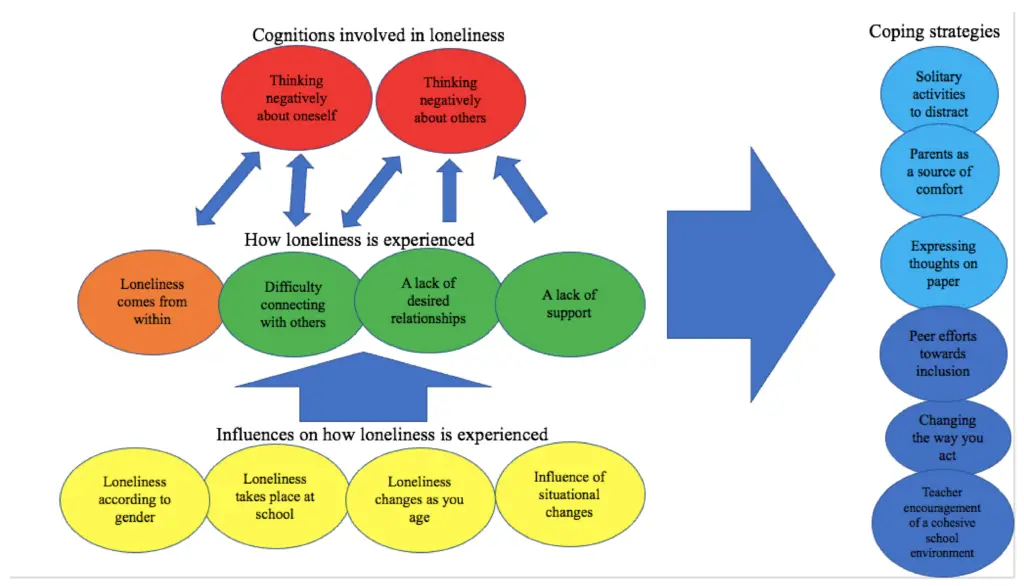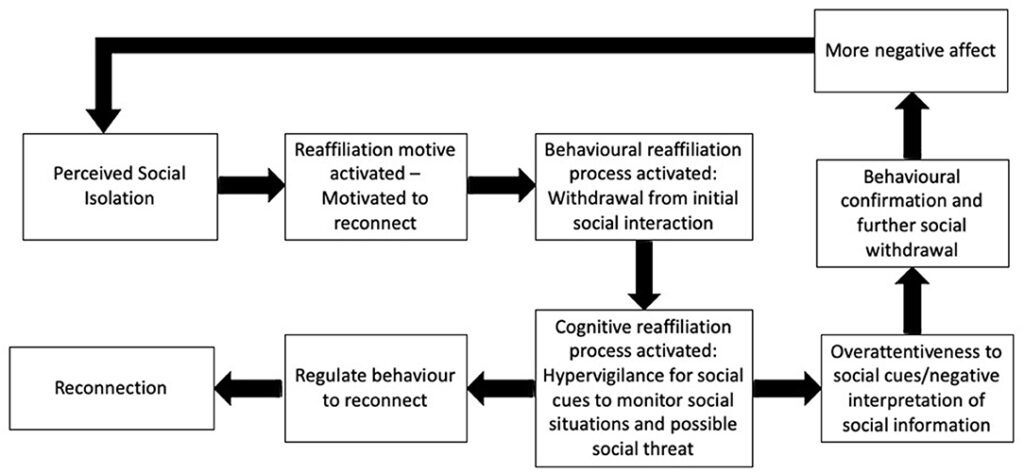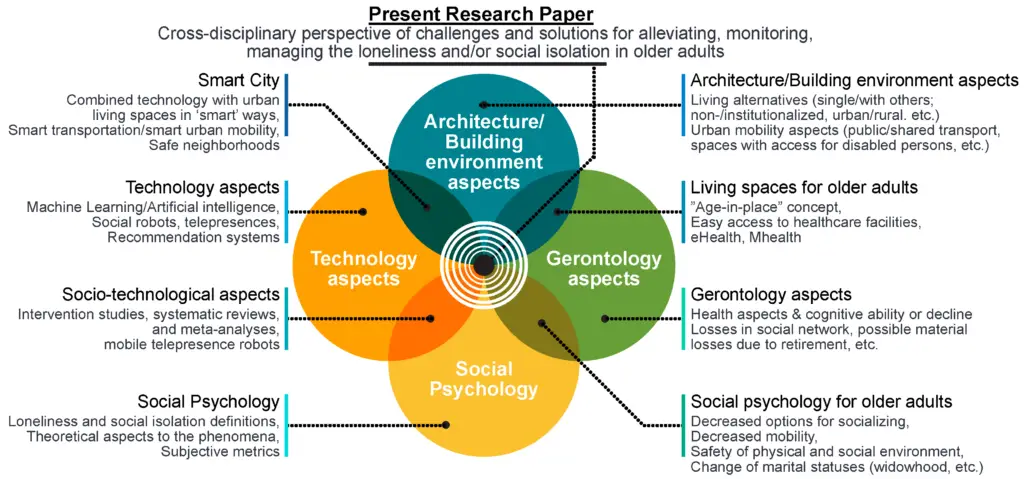In the unpredictable realm of survival scenarios, one can often find themselves faced with the daunting challenges of isolation and loneliness. Adrift in the vastness of nature or stranded on a deserted island, the absence of human companionship can weigh heavily on the spirit. However, fret not, for there are proven strategies that can help you cope with these feelings, providing solace and maintaining your mental resilience. By embracing the power of mindfulness, seeking creative outlets, and fostering a connection with nature, you can navigate the depths of isolation and loneliness with a renewed sense of hope and purpose.

Establish a Routine
Surviving in isolation can be challenging, but establishing a routine can provide a sense of structure and purpose to your days. Setting daily goals is an excellent way to stay motivated and focused. Whether it’s completing a specific task, learning a new skill, or simply taking time for self-care, having achievable goals gives you something to strive for.
Creating a schedule is also crucial in maintaining a routine. Set specific times for activities such as exercise, meal preparation, and relaxation. Having a schedule helps you stay organized and ensures that your days have a sense of purpose and direction.
Finding activities to occupy your time is essential in coping with isolation. Engage in activities that interest you and bring you joy. This could include hobbies like reading, painting, cooking, or even learning a musical instrument. Use this time to explore your interests and embrace creative outlets that make you feel fulfilled.
Stay Physically Active
Staying physically active has numerous benefits for your physical and mental well-being. Engaging in regular exercise is a fantastic way to maintain your physical health and release endorphins, which can boost your mood. Depending on your circumstances, you can try activities such as jogging, bodyweight exercises, or even yoga.
Exploring your surroundings is another way to stay active. Whether you’re in a wilderness setting or confined to a small space, take the opportunity to explore and appreciate nature. Go for walks, hikes, or simply connect with the environment around you. Spending time outdoors can be incredibly rejuvenating and can help combat feelings of isolation and loneliness.
Practicing yoga or meditation is also beneficial for both physical and mental well-being. These practices not only help increase flexibility and strength but can also bring a sense of inner peace and calmness. Take some time each day to practice mindful movements or engage in meditation to cultivate a healthy mind and body.
Maintain Social Connections
While isolation may limit face-to-face interactions, it’s essential to maintain social connections, as they play a crucial role in our overall well-being. Reach out to your loved ones regularly through phone calls, video chats, or even writing letters. Sharing your experiences, thoughts, and feelings can help alleviate feelings of loneliness and provide a sense of connection.
Technology can be a valuable tool in staying connected. Use social media platforms, messaging apps, or video conference tools to keep in touch with family and friends. Virtual gatherings or online game nights can be a fun way to interact with others and create a sense of togetherness, even from a distance.
Consider joining online communities or forums that align with your interests or experiences. These platforms provide opportunities to connect with like-minded individuals who may be going through similar situations. Engaging in discussions and sharing your thoughts can help combat feelings of isolation and foster a sense of belonging.
Develop Self-Sufficiency Skills
Building self-sufficiency skills is not only practical but can also provide a sense of empowerment and resilience. Learning how to hunt or fish can be a valuable skill in a survival scenario, as it allows you to provide sustenance for yourself. Research and practice hunting techniques or fishing methods that are suitable for your environment.
Obtaining basic survival skills is essential for self-sufficiency. This can include learning how to start a fire, build a shelter, or navigate using a compass or map. These skills will not only help ensure your survival but can also boost your confidence and preparedness.
Gathering and purifying water is crucial for your survival. Research different methods of water purification and practice them to ensure you can obtain clean and safe drinking water. Additionally, learning how to identify and gather edible plants or fruits in your surroundings can provide an additional source of sustenance.

Find Comfort in Nature
Nature has a way of soothing the soul and providing a sense of peace and tranquility. Take advantage of your surroundings, whether it’s a backyard, a forest, or a mountain range. Spending time outdoors can have a profound impact on your mental well-being.
Engaging in gardening is a fantastic way to connect with nature and find comfort in nurturing plants. If you have the space and resources, start a garden and watch as your plants grow and thrive. Gardening not only provides you with fresh produce but also allows you to enjoy the process of cultivating life.
Take time to appreciate the beauty of your surroundings. Observe the colors, textures, and sounds of nature. Whether it’s watching a sunset, listening to birdsong, or feeling the breeze on your skin, immerse yourself in the present moment and find solace in the natural world around you.
Cultivate Hobbies and Creativity
Finding joy and fulfillment in hobbies and creative outlets is crucial for maintaining a positive mindset. Reading books can transport you to different worlds, educate you, and offer a sense of escape. Use this time to explore different genres and authors that interest you, and let your imagination run wild through the pages.
Learning to play a musical instrument is not only a fulfilling hobby but can also provide a therapeutic outlet for expressing emotions. Whether it’s playing the guitar, piano, or any other instrument, the process of learning and creating music can uplift your spirits and provide a sense of accomplishment.
Practicing art or crafts is a creative way to channel your energy and emotions. Try painting, drawing, knitting, or any other artistic medium that resonates with you. Engaging in these activities allows you to express yourself, tap into your creativity, and find solace in the process of creating something by hand.

Establish a Support System
Building relationships with fellow survivors is vital for emotional support and collaboration. Share your experiences, fears, and successes with others who are going through similar hardships. Talking about your feelings and experiences can help alleviate the burden of isolation and provide a sense of camaraderie.
Collaborating on tasks or projects can be both encouraging and productive. Come together with your fellow survivors to divide tasks, share resources, and work towards common goals. The sense of unity and shared purpose can not only help everyone stay motivated but also create a strong support system within your survival camp.
Focus on Mental Health
Isolation can take a toll on your mental health, so it’s essential to prioritize self-care. Practice mindfulness and self-reflection by taking a few minutes each day to quiet your mind and be present in the moment. Pay attention to your thoughts and emotions without judgment, allowing yourself to process and accept them.
Manage stress and anxiety through various techniques such as deep breathing exercises, progressive muscle relaxation, or engaging in activities that bring you joy. Find what works for you and make it a priority to incorporate stress-relieving practices into your routine.
Seeking professional help is crucial if you find that your mental health is significantly impacted by isolation and loneliness. Reach out to mental health professionals who can provide guidance and support through counseling or therapy sessions. Remember, it’s okay to ask for help when needed.

Utilize Positive Coping Mechanisms
In challenging times, it’s crucial to engage in positive coping mechanisms that promote well-being. Engage in relaxation techniques such as deep breathing, meditation, or taking warm baths. These activities can help soothe your mind and body, allowing you to find moments of peace and calm.
Take regular breaks and prioritize self-care. Allow yourself time to rest, recharge, and engage in activities that bring you joy and relaxation. Whether it’s taking a walk, listening to music, or indulging in a hobby, remember to take care of yourself and prioritize your well-being.
Maintaining a positive mindset can significantly impact how you cope with isolation. Practice gratitude and focus on the things you are thankful for, no matter how small. Look for silver linings and find optimism even in the most challenging of situations. Having a positive outlook can help uplift your mood and provide hope for the future.
Stay Productive and Purposeful
Setting achievable goals provides you with a sense of purpose and fulfillment. Determine what tasks or projects are attainable within your circumstances and work towards completing them. Whether it’s organizing your living space, learning a new skill, or contributing to your survival camp, setting goals keeps you motivated and engaged.
Contribute to the survival camp by offering your skills and expertise. Whether it’s cooking meals, tending to the garden, or providing emotional support to your fellow survivors, actively participating in your community creates a sense of purpose and collective responsibility. Your contributions not only benefit others but also give you a sense of accomplishment and fulfillment.
Use this time to learn new skills or gain knowledge in areas that interest you. Explore online courses or tutorials, read educational books, or watch instructional videos. Expanding your knowledge and acquiring new skills not only keeps your mind engaged but also increases your resilience and adaptability in survival situations.
In Conclusion,
Coping with isolation and loneliness in survival scenarios can be challenging, but by implementing these strategies, you can maintain your well-being and find comfort in the midst of adversity. Establishing a routine, staying physically active, maintaining social connections, developing self-sufficiency skills, finding comfort in nature, cultivating hobbies and creativity, establishing a support system, focusing on mental health, utilizing positive coping mechanisms, and staying productive and purposeful are all essential aspects of coping with isolation. Remember to be kind to yourself, reach out for support when needed, and embrace the opportunity for personal growth and resilience.
